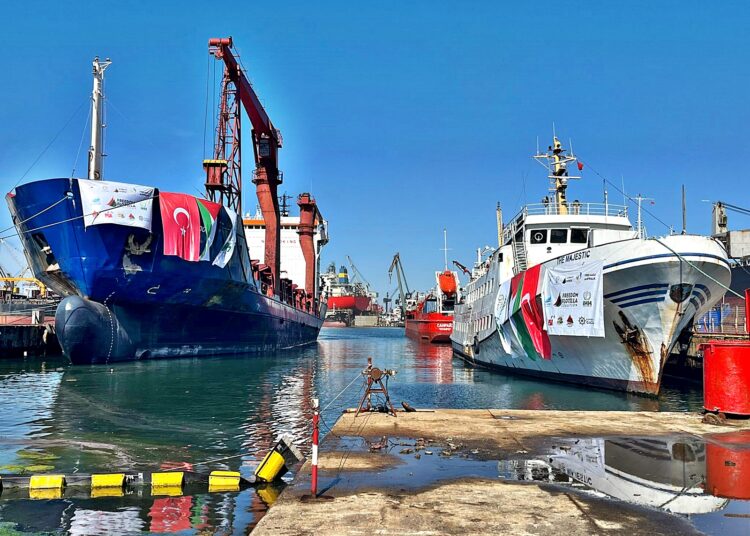Levent Kenez/Stockholm
A Turkish government-backed Islamist NGO has advanced its plans to organize an aid flotilla to break Israel’s blockade on Gaza. The NGO, which has now procured three vessels, is preparing to set sail soon. The initiative comes amid criticism directed at Turkish President Recep Tayyip Erdogan for not adequately responding to human rights violations committed by Israel in Gaza and for ties between Turkish businessmen close to him and Israel. Erdogan’s stance on this flotilla will likely be pivotal in determining whether a new crisis between the two countries will emerge.
Bülent Yıldırım, president of the Foundation for Human Rights and Freedoms and Humanitarian Relief (İHH), a charity organization in Turkey backed by Turkish Intelligence and associated with radical jihadist groups, on February 17 had announced new initiatives for organizing a fleet of ships aimed at breaking Israel’s naval blockade on Gaza. Speaking at an event in Istanbul, Yıldırım revealed that the flotilla was scheduled to set sail by the end of March, with simultaneous departures expected from several countries across Europe. However, as the plans did not materialize in March, a new date is now set for the end of April. The İHH is calling for volunteers to join the ships bound for Gaza. However, the likelihood of the flotilla setting sail by the end of April is also considered to be low.
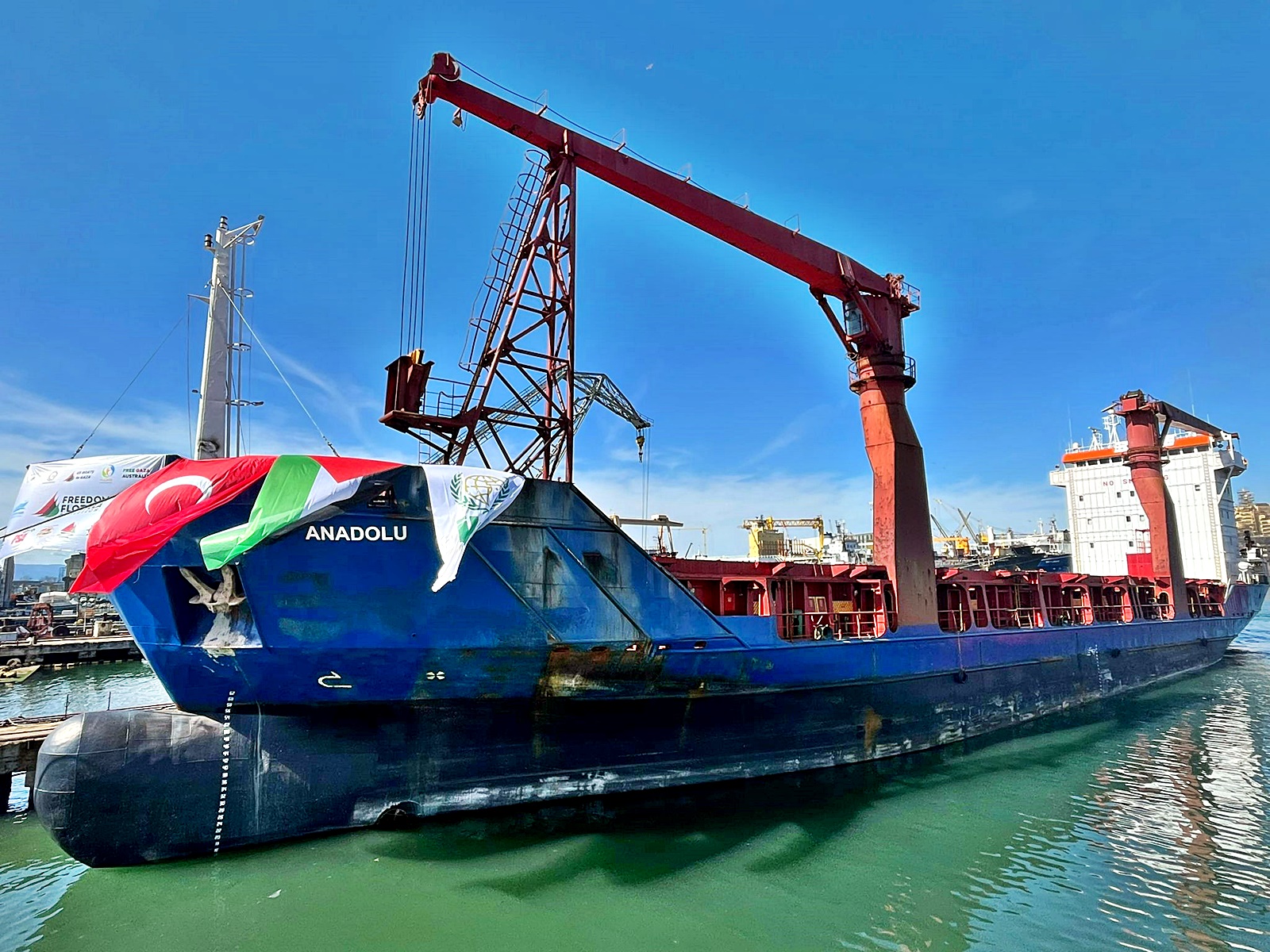
In a recent announcement, the İHH said it had acquired three ships for its upcoming fleet. The first vessel, renamed Anadolu (IMO:9139127, a unique ship identification number introduced by the International Maritime Organization), was a general cargo ship built in 1997 and is currently operating under the flag of Guinea-Bissau. Previously known as the Dalya H, the ship boasts a capacity of 5,500 tons.
In addition to the Anadolu, the İHH has also purchased another vessel — a passenger ship built in 1972 that is currently operating under the flag of Palau. Formerly known as The Majestic (IMO:7211440) the İHH has renamed the ship the Conscience. The vessel is currently anchored at Istanbul’s Tuzla port, awaiting further instructions.
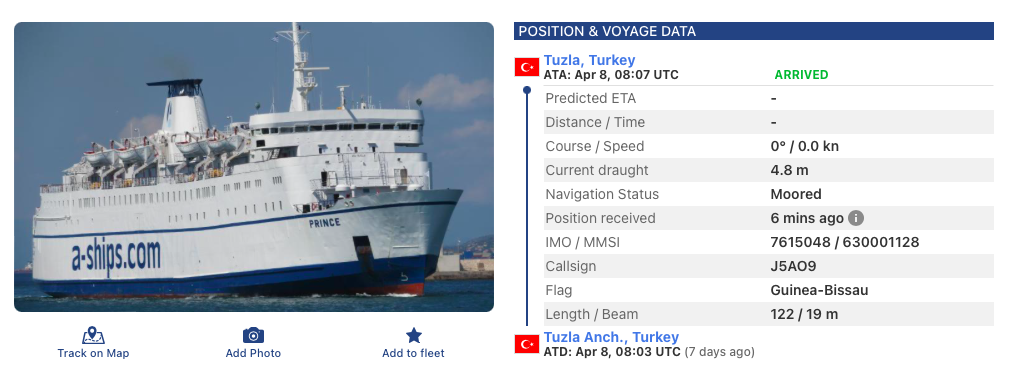 The third vessel, renamed Akdeniz (IMO: 7615048), is a Ro-Ro/passenger ship currently sailing under the flag of Guinea-Bissau with a length overall of 122.05 meters and a width of 18.5 meters. The ship arrived in Istanbul on April 9 after departing from Izmir’s Port of Aliağa. The 45-year-old vessel, formerly known as the Prince, has a history of service as a passenger ship between Greece, Italy and Croatia for an extended period of time.
The third vessel, renamed Akdeniz (IMO: 7615048), is a Ro-Ro/passenger ship currently sailing under the flag of Guinea-Bissau with a length overall of 122.05 meters and a width of 18.5 meters. The ship arrived in Istanbul on April 9 after departing from Izmir’s Port of Aliağa. The 45-year-old vessel, formerly known as the Prince, has a history of service as a passenger ship between Greece, Italy and Croatia for an extended period of time.
Video shared by the İHH on social media:
During inspections on March 27 aboard the Anadolu and the Conscience, Yıldırım stated in a video published on X that additional ships would be added to the fleet. “Conscientious activists will be aboard these ships, carrying the conscience of the world to the shores of Gaza. The plight of Gaza will be narrated in the Mediterranean in a way that mobilizes the entire world, with people taking to the streets. Everyone will exert pressure on their leaders. The flow of arms to Israel will be cut off, trade with Israel will be halted and Israel will be placed under a blockade,” he said.
However, the İHH has not yet issued any reaction or response regarding Turkish businessmen who engage in trade with Israel.

The establishment of the new flotilla by the İHH evokes memories of a similar effort back in 2010, when the Mavi Marmara flotilla attempting to deliver aid to Gaza was intercepted by the Israeli navy, leading to the tragic death of nine Turkish and one Turkish-American pro-Palestinian activist. This incident not only triggered a diplomatic crisis but also became a potent political tool for then-prime minister Erdogan during domestic rallies.
In March 2013, then-Israeli prime minister Benjamin Netanyahu conveyed an apology to Prime Minister Erdogan, his Turkish counterpart at the time, regarding the deadly incident, during a meeting with US president Barack Obama.
After extensive negotiations, Turkish officials announced that an agreement had been reached in talks with Israel aimed at normalizing relations between the two countries. The İHH openly criticized the agreement.
In a speech at his palace on June 29, 2016, Erdogan indirectly referred to the İHH, stating: “We are taking a step on an international scale. Did you ask the prime minister of the time [referring to himself] to carry such humanitarian aid from Turkey? We have always provided and continue to provide the necessary aid to Gaza. We did it for Palestine, and we continue to do it.”
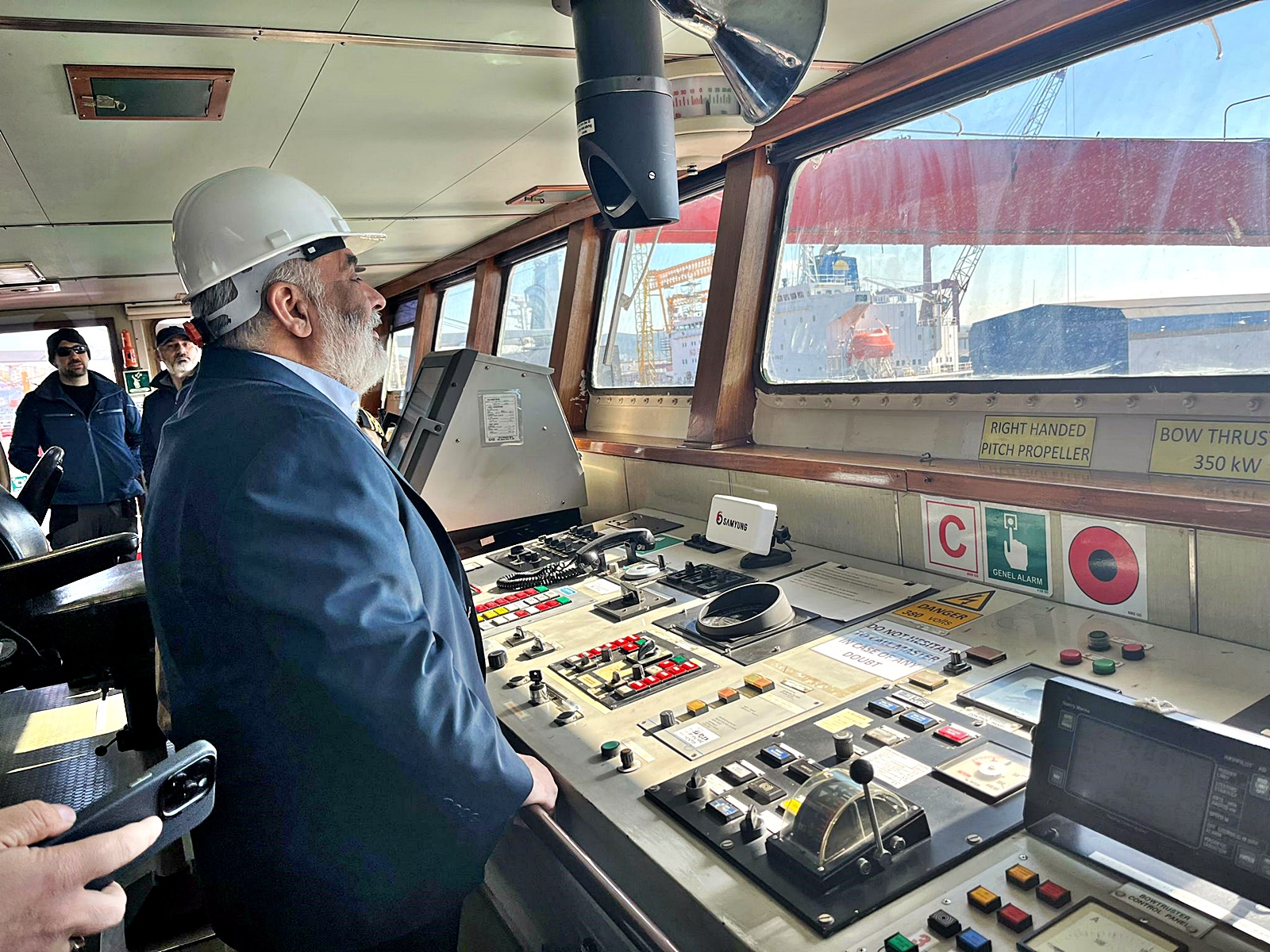
“We did all this not for show, but within the framework of international diplomacy. We did, we are doing and we will continue to help Gazans with decorum, not with drums and trumpets,” he added.
However, it was deemed implausible by many that the İHH, with its close ties to Erdogan, would have organized the Mavi Marmara flotilla without his approval.
Erdogan has not yet made any statements regarding the İHH’s new initiative. However, it seems unlikely that the İHH would act without his knowledge, just like 2010. If an aid flotilla is once again violently intercepted by Israel and Turkish citizens are killed, it could lead to an even deeper crisis between Israel and Turkey than in 2010. Erdogan may also face backlash from the Turkish public this time around. If Erdogan does not allow Turkish activists to board the ships and the fleet to set sail, he could face criticism from Islamist groups and his loyalists who are accusing him of failing to take concrete action against Israel. Another possibility is that the fleet changes its final destination en route and heads to Egypt, in which case Israeli intervention may not occur.
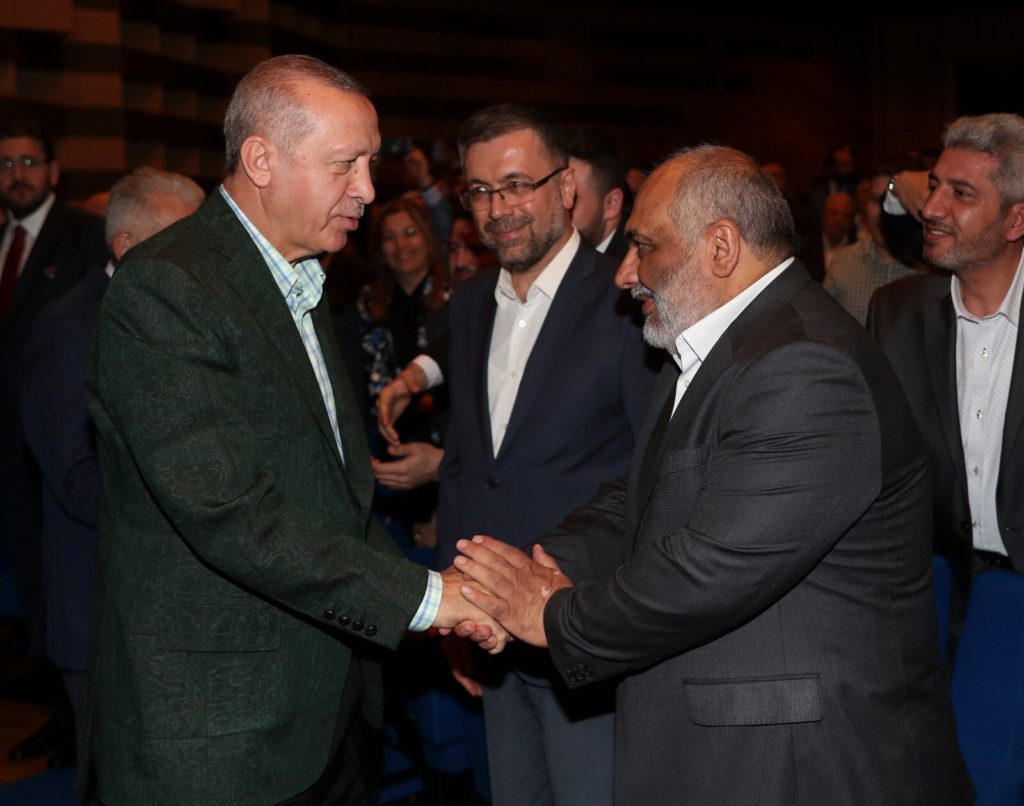
Turkey announced on April 9 that it would impose trade restrictions on Israel in response to the conflict in Gaza. The new measures were introduced a day after Turkish Foreign Minister Hakan Fidan claimed that Israel had obstructed its efforts to airdrop aid into Gaza.
“The decision will remain in effect until Israel declares an immediate ceasefire and allows a sufficient and uninterrupted flow of humanitarian aid into Gaza,” the Turkish Ministry of Trade said on X. Attached to the announcement was a list of 54 products subject to export restrictions. However, experts express skepticism about the government’s decision due to the absence of the customs tariff codes in the published list. According to reports in the Turkish media, it has also been alleged that trade with Israel will continue through third countries.
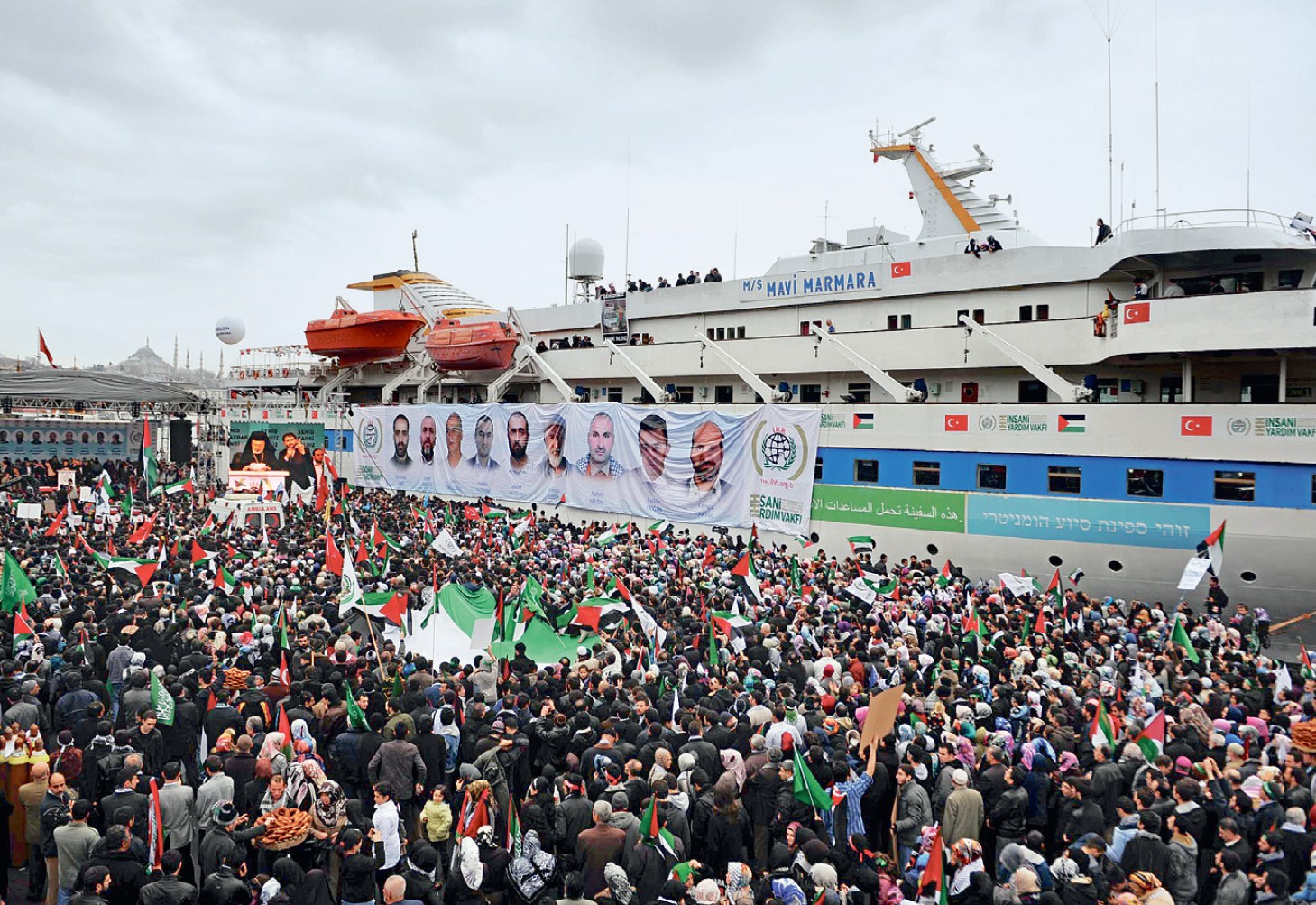
The ministry’s statement was followed by Turkish police detaining a small group of pro-Palestinian protesters who gathered in Istanbul to urge the government to sever trade ties with Israel.
The heavy-handed police response sparked criticism from many many, including pro-government groups. Of particular note was the fact that two of the detained protesters were the daughters of a man who lost his life aboard the Mavi Marmara in 2010, further fueling public outrage. Government-affiliated media outlets accused the protesters of being puppets of foreign powers, with some even alleging that they were Mossad agents.

